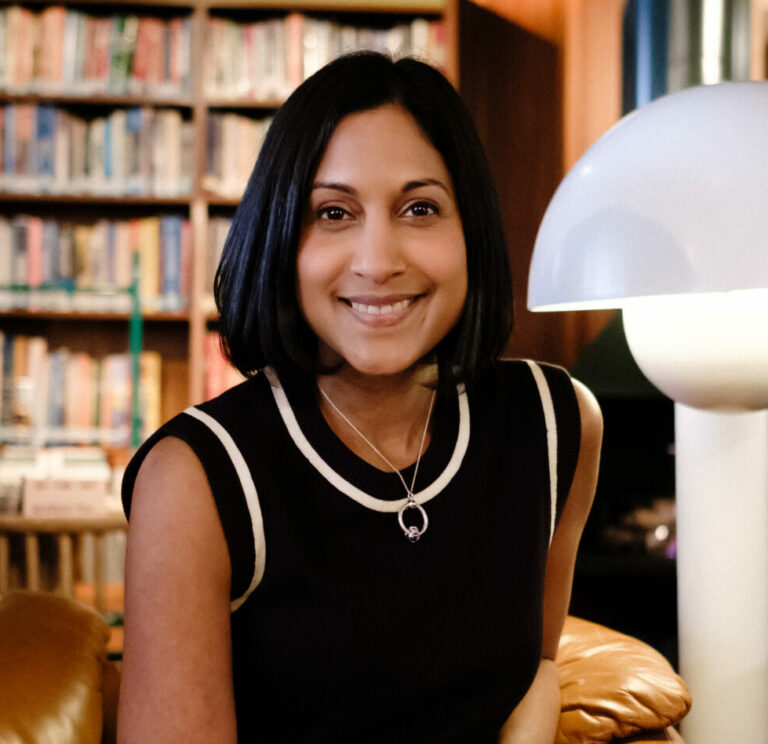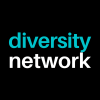INCLUSION 2021 is the annual global online festival celebrating DEI as some of the world’s thought leaders share their cutting-edge ideas for the future of the workplace. In this series, we take a look at some of last year’s speakers from 2020.
First up, we have Emma Ford, who spoke as Head of Gas Construction at National Grid. Emma led two key initiatives for National Grid including implementation of the net zero construction targets and the mental health construction campaign. Emma is a real ambassador for diversity in the workplace. She supports women in National Grid, mentoring colleagues and supporting the network. Her passion is identifying and developing talent and creating opportunities for people to progress.
Here is our conversation with Emma at INCLUSION 2020:
“Thanks again for the opportunity to share my experiences and to provide an insight to you of my experience and benefit of inclusion and diversity within the workplace. I hope that you will all gain numerous insights into this event, it really is an amazing opportunity for experiences to be shared. I’ll be providing you with some insights into my career and my current place of work national grid, along with giving you some tips for how to create momentum for inclusion and diversity. I passionately believe the industry I work in the construction and energy sectors are amazing places to grow careers. And with the challenges of net zero upon us, there is an opportunity to truly make a difference. It is imperative within these sectors that we challenge the way we’ve done things before, and it’s where inclusion and diversity can make a real difference. Recently, I became the Head of Gas Construction at National Grid. Really chuffed to take on the role of the opportunity to lead multiple teams with over 100 National Grid staff, including site managers, project engineers, project supervisors and project managers, along with hundreds of contractors who work on our construction sites. The teams are responsible for constructing new assets along major works on asset refurbishment, and this helps keep the gas flowing and deliver the energy where we need it. It’s an exciting time to work at National Grid as we’re looking to invest approximately 1.5 billion of capital over the coming years. This of course needs to be delivered to time, cost and quality whilst not compromising safety.
“So who am I? I’m a qualified geotechnical engineer and my leadership experiences vary from environmental and sustainable consultancy through to developing wind farms alongside construction of energy infrastructure. National Grid has a vision to build and develop a diverse workforce that is fully representative of the communities we serve. And I’m really proud to work for National Grid and the result is an organisation where people are seen as the lifeblood of the company. Every year, they have striven to create a diverse and inclusive workforce. The business knows that diversity/inclusivity is not only the right thing, but it also makes business sense. National Grid has a robust foundation of inclusion and diversity activity. But more importantly, they really know they want to address the key issues associated with it. The key focus areas that are currently in place are ensuring that we’re appealing inclusive employees with providing accessible hiring processes without applying any bias. I found this extremely critical within the construction industry. This all ties in with my personal passion within the energy sector to identify and develop diverse talent, creating opportunities within organizations, individuals to reach their full potential. Having true belief in themselves is really important to me. I really enjoyed the technical aspects of the energy sector. But early on in my career, I realised that I gain my energy from developing others. I gained insights that in order to deliver energy projects, we need people with passion and get up and go from diverse backgrounds. I believe that people are the tools in order to get a job done, and they need to feel motivated and valued. The great thing about harnessing the potential in individuals is it can be so rewarding. And this provides me with personal momentum, and moments of adrenaline when I see people developing and progress in their careers.
“National Grid owns and operates the electricity and gas transmission networks alongside running a non-regulated business. But they continue to invest in energy projects, technologies and partnerships to accelerate the development of clean energy future. For example, the construction of interconnectors. The nature of this business means that I personally have seen that there are plenty of opportunities for individuals to develop their careers. And it also provides an excellent environment to attract a diverse workforce. The best teams that I’ve met have been diverse, as they appropriately challenged the way we’ve done things in the past. They create better solutions, which from my perspective is absolutely critical within the sector that I work. I recently got asked about tips that I would pass on to others when trying to create a diverse and inclusive team. Tip 1: Find individuals who are passionate about their career path. When I first started working, I was employed as a geotechnical engineer, and I hated going to work. I struggled with the working world, as my strength was not reviewing Excel spreadsheets. I associated my unhappiness with the world of work, and I was going to go back to university and complete a PhD. Luckily, the renewables manager saw my energetic nature and potential and gave me a chance to get involved in the onshore wind industry. He gave me full autonomy to network with potential clients, and my career in the renewables and sustainability industries kickstarted from there. This gave me the confidence to perform in a male-dominated industry tip to remind individuals that the only person blocking their career progression is themselves. As I started progressing my career to more senior positions in the construction industry, I started to feel imposter syndrome. I was the only female on construction sites. And I had a gremlin on my shoulder telling me that I didn’t have the right to the role. Luckily, when I attended a safety forum, which was also male-dominated, I got feedback from a contractor saying how refreshing it was that I was present. They said that I provided a unique set of energies and new ideas to the forum. I then decided that I did have a right to the role, as I’ve worked hard for it, and I had something different to offer. When trying to develop diverse teams, I found that individuals do not always realise their full potential, due to their personal blocking. So now, I make sure that the development conversations I have try to truly unlock their full potential, so that we have access to creating the best teams possible. And my final tip, tip 3, allow individuals to always be authentic at work, create an environment for them, for them to be themselves. Early on in my working career, I thought I would keep work and personal life separate. I therefore wanted to bring a different person to work. I thought I’d be judged by talking about personal aspects. I then soon learned that it’s hard work bringing someone different to the work environment. And that strength I bring to work, energy, is at risk, if I’m working to be to people. I also recently learned the value of being an authentic leader. Having come back from maternity leave, where my husband and I experienced postnatal depression, I had the courage to share my story across the Directorate, this was to demonstrate to all the leaders are human and it’s okay to talk. The response from the individuals within the Directorate in relation to mental health has been significantly positive, which is really important in the construction industry, noting that we’re in COVID times. Hopefully, these tips and insights will be of help and giving you some extra energy to keep focusing on the importance of inclusion and diversity in the workplace. Thank you so much for listening to me today. And good luck to you all. It’s brilliant that we’re now in an environment where we can have more open conversations about such an important subject matter.”
On… Mentoring
“So, mentoring has been absolutely significant in my career, but it has to be me with the right mentor. And you have to have an honest and open relationship between the mentee and the mentor. So fundamentally, for me, the most successful most mentoring relationships, and where I’ve mentored others, has actually been where there’s been a chemistry between the individuals and a positive chemistry. So I always have, when I start a mentor conversation with my mentees, a very open dialogue to say, at any time, if this isn’t adding any more value to your environment or to your career, or to your thinking, let’s stop the conversations. And fundamentally, let’s create action plans and real things that we can go out to be able to support you. And what you’ll find is that fundamentally, you have some quick wins and then you then, okay, then move on to others who will also be able to help you on your career journey, because you need different people at different points within the career. I have noticed as I’ve progressed through that, like organisations, that mentoring has become much more of a common thing. And something that I found really valuable is actually reverse-mentoring, which is something they do at National Grid to fundamentally hear from individuals within the organisation. Okay, what can we do better as leaders? And that’s those conversations with individuals that do bring diversity. And fundamentally, how can we make you more inclusive? And how can we make you feel more part of the organization? And it has to be through open dialogue. That is where individuals have a relationship, and they have that chemistry that I suggested at the beginning?”
On… Women at National Grid Network
“It is an initiative that is fundamentally led by the leaders within the organisation, but it’s also led by the people. So it’s one of our approaches, and it’s been in the organisation ever since I joined, which was five years ago. And it’s about encouraging individuals to form a network, and fundamentally have a series of initiatives that inspire others to join, what would be traditionally engineering male dominated organisation, with great news with ‘Wing’ is that it’s a place where males can also sponsor females and support them through their careers as well. So it’s not just for women and women only, it is also for male mentors and mentoring associated with it. So typically, there’s a series of initiatives that are decided on a rolling 12-month basis. Some of the initiatives include, for example, going out of National Grid and developing young individuals in terms of STEM careers, and encouraging them to participate in items such as that. Others are initiatives in terms of training, so it might be the gremlin that I talked about on the shoulder, it may be actually encouraging for women to believe in themselves that they can go for a job. So there’s obviously the research out there that when a role is available, and be to be able to apply for what ends up happening is, a woman typically wants to have be able to see that she can complete 100% of the job. Whereas a male is likely to apply for that job, even if they can only complete 50% of the requirements to fit that role. And it’s about trying to make that step change and having that confidence. So my role, this year, is specifically to challenge the initiatives that we’re doing, is to go out to our members that are across the organisation to establish whether what they want to see over the next year, and being mindful of what can be available within COVID times, which is fundamentally creating a network which ties into a lot of our mental and wellbeing initiatives.”
On… Flexible Working
“I think a key difference is that it’s now acceptable to potentially have a child standing next to you when you’re on a Teams call. That completely would have been unacceptable prior to COVID. I think the key that needs to happen with especially in the construction industry is out on site. And it’s making sure that fundamentally, there needs to be a balance between doing onsite work and working from home. And that is acceptable to work from home. And luckily, the National Grid, it’s always been that they have got that balance quite right. And it never felt like I’ve been sort of travelling around the country and not then having the time at home. So it didn’t feel that different moving into to COVID times. But definitely I think that there is a big emphasis in terms of being in a position whereby it’s acknowledged that you can have a, you know, a work and a life balance, and you know, they are in play with each other. So, it may be one week, you work extra hours, because you need to get something back into service. But fundamentally, you can then take that time back, because you’ve got that flexibility, and then you can fit around family life, etc.”
On… Inclusion
“Fundamentally, that inclusion piece is down to, so each month, I work with my leadership team, and we have a matrix of talent, but we also constantly review our teams. And then we’ve looked through the opportunities that are coming up in terms of like leading initiatives, such as contributing to net zero and aspects within that. And then what we do is we look at their development plans, and we say, okay, well, what isn’t an initiative that either supports that development plan, or fundamentally needs their passion area. And that’s something that I regularly do on a monthly basis. What we’ve also done is done some buddying, that’s happened as well. So making sure that actually, we acknowledged individuals are new to the organisation, or they’re working from home and they don’t know much about the industry, in putting it this buddying system in place. And there’s not mentoring, it’s just fundamentally someone that they can call on and they’re building relationships, to just have that moment of that honest chat. Because sometimes it’s not always easy, especially when you’re new to an organisation, talking to your manager, you don’t want to be seen to, you know, not ‘be weak’, and I know it’s completely the wrong terminology. So it’s the best thing where you can put a body in place, it might be someone that only started in the organisation a year previously. So they know what it’s like to be a newbie. And I think we all need to be mindful that actually team activities don’t have to physically be in company with each other. They can occur through, like, quizzes. So for example, in the construction part of National Grid, we have now three quizzes that, you know, have been team events. So fundamentally, that’s created that team atmosphere as well.”
On… Different forms of Communication
“Some people do really well with videos, for others, it will be written email, it is completely, you know, making sure that you’re getting lots of messaging in different formats. And then also, another thing that we’ve done a big thing about is actually celebrating successes, as well, so that people can really acknowledge the hard work they’ve put in. And it might be something as small as, so on a weekly basis, I asked one leadership team, okay, well, what successes did we achieve last week, what individuals have contributed to that success, and then I personally email those, each of those individuals, just to acknowledge their contribution. And the amount of emails that I get back to say, thank you so much! And we do that all the way up through the organisation. So the director of the construction component capital delivery, he does a weekly call, as well, to acknowledge those successes. So that’s a big part of it as well, to keep the energy going when we are more distant from each other.”
On… Mental Health
“Across November, we’ve actually in construction, done something called Movember. And, and fundamentally, it’s not just been aimed at the male population that we employ. It’s also been aimed at females then having conversations with their male friends, etc, in terms of male health, and associated with that is that we’ve done like a big charity competition between the teams, and through that, you know, raised a significant amount of money, but also got the messages out around mental health, men’s health and things like checks and balances. And that’s created, you know, double benefits sort of opened up the conversations around mental health and construction, but also created a team atmosphere in terms of having a mini competition against each other. And then fundamentally, it has raised money for a key charity as well.”
On… DEI priorities
“I think the biggest problem you’ve got is the role association in industry. So fundamentally, it is seen, on the ground, as men’s work. And you’re never going to get away from that. But all you can do is create that right environment. Because where I see the biggest gaps at the moment is actually around not in National Grid, but around the leadership table of our contractors. So fundamentally, they are doing everything they can, but the pool of resources they’re taking from is fundamentally individuals that have worked up through the organizations. However, there is an opportunity to make a step change with that. And I am starting to see that and that is actually recognising that individuals of leaders of those organisations don’t need to be males that have worked on the ground in the construction environment. It can be individuals that have worked across other industries. So traditionally, in a workplace, you would work your way up through the organisation, it typically would be the number of years that that you had worked for, and you would then get your special badge to say, yes, you’re a manager. But fundamentally, that doesn’t necessarily mean that you’re a leader. And what I am seeing more and more is organisations being very receptive to, you don’t need to be an expert in the field to lead individuals and that’s great. You then bring into executive positions, into leadership roles, more diversity, whether it be BAME, whether it be female individuals, for example, and therefore then encourages those who are being recruited into staff positions, thinking, actually, I can do this, because I’m being inspired by the people that are sitting on that top table, it doesn’t need to be a mirror on the wall of what’s sitting around that executive place. So it’s going to take time, as where I see it. And it’s going to need continued effort from everyone across the industry to realise that it is, you know, an amazing place to work, it can be an environment that brings a lot of adrenaline and it doesn’t need to be that you need to fundamentally be able to construct something to be able to be a leader within those organisations.”
This was a transcript from INCLUSION 2020. Please join us for this year’s event – it promises to be unmissable, as the world’s leading DEI brains share their practical insights into how to drive the industry forward into 2022.
Claim your free ticket here: https://www.inclusionevent.com/





